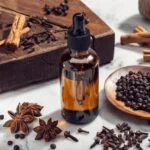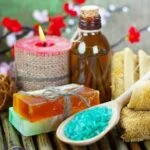Welcome to the world of aromatherapy massage, a therapeutic practice that combines the power of touch with the enchanting aromas of essential oils. In this introductory section, we will delve into the origins and misconceptions surrounding aromatherapy massage, and provide a glimpse into its vast array of benefits.
Aromatherapy massage is a holistic healing modality that has been used for centuries to promote relaxation, relieve stress, and enhance overall well-being. It involves the use of essential oils derived from plants, which are applied to the skin during a massage session. These aromatic oils not only stimulate the senses but also have various therapeutic properties that work in harmony with the body’s natural healing processes.
The history of aromatherapy massage can be traced back thousands of years to ancient civilizations such as Egypt, Greece, and China. Over time, this practice has evolved and gained recognition worldwide for its ability to improve physical and mental health. However, there are several misconceptions associated with aromatherapy massage, which we will debunk in this article.
So join us on this enchanting journey into the world of aromatherapy massage as we explore its science, benefits, and practical applications. Whether you’re seeking relaxation, relief from muscle tension or simply want to pamper yourself with a rejuvenating experience, aromatherapy massage holds transformative potential for your mind, body, and soul.
Unveiling the Science Behind Aromatherapy Massage
Aromatherapy massage combines the therapeutic benefits of essential oils with the techniques of traditional massage therapy. The science behind aromatherapy massage lies in the powerful connection between our sense of smell and the limbic system, which plays a key role in our emotions and memories. When essential oils are inhaled or absorbed through the skin during a massage, they can have a direct impact on our mood, relaxation, and overall well-being.
Essential oils are highly concentrated plant extracts that capture the natural scents and medicinal properties of various plants. These oils are derived from different parts of plants such as leaves, flowers, bark, or roots. Each essential oil contains unique chemical components that contribute to its specific therapeutic effects. For example, lavender oil is known for its calming properties and ability to promote relaxation, while peppermint oil is invigorating and can help alleviate headaches.
During an aromatherapy massage session, the essential oils are carefully selected based on the individual’s needs and preferences. The therapist may use single essential oils or create customized blends to address specific ailments or desired effects. The chosen oils are then mixed with a carrier oil before being applied to the client’s skin during the massage.
The benefits of incorporating aromatherapy into massage sessions are numerous. In addition to enhancing relaxation and reducing stress, certain essential oils can also help alleviate common ailments such as muscle tension, headaches, and insomnia. Aromatherapy massage has been found to boost overall well-being by improving sleep quality, reducing anxiety levels, and even enhancing emotional balance.
Incorporating essential oils into massage therapy not only enhances the sensory experience but also provides additional therapeutic benefits for both mind and body. By understanding the science behind aromatherapy massage and selecting the right combination of essential oils, individuals can maximize their potential for relaxation, rejuvenation, and healing.
| Benefits | Practical Application |
|---|---|
| Promotes Relaxation | Helps to reduce anxiety and induce feelings of calmness during a massage session. |
| Alleviates Common Ailments | Aids in relieving headaches, muscle tension, and insomnia through the therapeutic effects of specific essential oils. |
| Improves Emotional Balance | Can enhance emotional well-being by reducing stress levels and improving overall mood. |
Essential Oils 101
Introduction to essential oils and their properties
Essential oils are highly concentrated plant extracts that capture the natural fragrance and therapeutic properties of various plants. These oils are obtained through a process called steam distillation or cold-press extraction. Each essential oil has its own unique chemical composition, which gives it specific aromatic and therapeutic qualities.
Key essential oils used in aromatherapy massage
There is a wide range of essential oils used in aromatherapy massage, each with its own distinct benefits. Some of the most commonly used essential oils include lavender, peppermint, eucalyptus, chamomile, and rosemary.
Lavender oil is well-known for its calming and sedative properties, making it a popular choice for relaxation massages. Peppermint oil is invigorating and refreshing, making it ideal for relieving muscle tension and enhancing mental focus. Eucalyptus oil has both anti-inflammatory and decongestant properties, which can help alleviate respiratory issues during a massage session.
Chamomile oil is known for its soothing effect on the mind and body, promoting relaxation and relieving anxiety. Lastly, rosemary oil is often used to stimulate circulation, relieve pain, and improve digestion.
How different scents impact the mind, body, and emotions during a massage
The sense of smell plays a powerful role in how we perceive our surroundings and how our bodies react. When inhaled, aroma molecules from essential oils reach receptors in our nasal cavity that send signals to our brain’s limbic system – the area responsible for emotions, memories,and hormone regulation.
Different scents have different effects on the mind, body,and emotions during an aromatherapy massage session. For example:
- Lavender scent promotes relaxation by reducing stress hormones like cortisol.
- Citrus scents like lemon or orange can uplift mood by stimulating the release of mood-enhancing neurotransmitters like serotonin.
- Peppermint scent invigorates and energizes, improving focus and concentration.
- Rose scent is often associated with feelings of love, comfort, and emotional balance.
By choosing the appropriate essential oils for each individual, aromatherapists can create a personalized experience that addresses specific needs and promotes overall well-being.
To summarize, essential oils have unique properties that contribute to their therapeutic effects during an aromatherapy massage. Understanding the properties and benefits of key essential oils is crucial in creating a tailored massage experience that caters to each individual’s needs.
The power of scent should not be underestimated, as it has a direct impact on our emotions, thoughts, and physical well-being. By incorporating the right essential oils into massage therapy sessions, aromatherapists can enhance the overall effectiveness and enjoyment of the experience for their clients.
Personalizing Your Aromatherapy Massage Experience
Consultation process: assessing individual needs and preferences
When it comes to aromatherapy massage, personalization is key. Each individual has unique needs and preferences, which is why a thorough consultation process is essential before starting the massage session. During the consultation, the aromatherapist will take the time to understand the client’s physical and emotional state, as well as any specific concerns or goals they may have. This allows them to tailor the aromatherapy massage experience to meet their client’s specific needs.
Choosing the right essential oil blends for different ailments or desired effects
Once the aromatherapist has assessed the client’s needs and preferences, they can select the appropriate essential oils for the massage session. Essential oils have various properties that can address different ailments or desired effects. For example, lavender oil is known for its calming properties and can aid in relaxation, while eucalyptus oil has a cooling effect and can help with respiratory congestion. The aromatherapist will carefully choose essential oil blends that align with the client’s specific goals.
Tips on customizing the aroma, intensity, and duration of massage
In addition to selecting the right essential oil blends, customization of other aspects of the massage experience is also important. This includes adjusting the aroma, intensity, and duration of the massage according to individual preferences. Some individuals may prefer a stronger scent in their massage oil, while others may be more sensitive to certain smells.
Similarly, some clients may prefer a deep tissue massage with higher pressure levels, while others may prefer a gentler touch. The duration of the massage can also be tailored based on individual preferences and time constraints. A skilled aromatherapist will take these factors into consideration and ensure that each client receives a personalized aromatherapy massage experience.
Personalization is at the heart of an effective aromatherapy massage session. By assessing individual needs and preferences, choosing the right essential oil blends, and customizing various aspects of the massage experience, aromatherapists can provide a truly transformative and personalized journey for their clients. Whether it’s promoting relaxation, alleviating specific ailments, or enhancing emotional balance, personalizing the aromatherapy massage experience ensures that each client’s unique needs are met, leading to optimal health and well-being.
Step-by-Step Guide to an Aromatherapy Massage Session
Aromatherapy massage is a unique and rejuvenating experience that combines the power of touch with the therapeutic properties of essential oils. If you’re interested in trying an aromatherapy massage session, this step-by-step guide will walk you through what to expect:
- Preparing the massage area and setting the mood: Before your session begins, the aromatherapist will create a calming and relaxing environment. This may include soft music, dim lighting, and a comfortable massage table with clean linens. The space will be filled with soothing scents using a diffuser or scented candles to enhance the overall ambiance.
- Safe application of essential oils during massage therapy: Once you are comfortably positioned on the massage table, the aromatherapist will begin by applying diluted essential oils to their hands or directly onto your skin. They will then incorporate various massage techniques and strokes to distribute the oils evenly throughout your body. It’s important to note that professional aromatherapists use high-quality, therapeutic-grade essential oils that are safe for topical use.
- Techniques and strokes tailored specifically for aromatherapy massage: During an aromatherapy massage session, the therapist may use a combination of techniques such as Swedish, deep tissue, or lymphatic drainage massages depending on your specific needs and preferences. They will adjust the pressure and speed of their strokes accordingly to ensure maximum relaxation and effectiveness in delivering the benefits of both touch and scent.
Throughout the session, it’s important to communicate with your therapist about any discomfort or preferences you may have so they can customize the experience according to your individual needs. Remember that each session is unique, designed to cater to your well-being and offer you a truly personalized aromatherapy massage experience.
Incorporating aromatherapy into your regular massage sessions can provide numerous health benefits for both your body and mind. In the next section, we will explore the specific health and wellness benefits of aromatherapy massage in more detail.
The Health and Wellness Benefits of Aromatherapy Massage
Aromatherapy massage is not only a luxurious and relaxing experience, but it also offers numerous health and wellness benefits. The use of essential oils during massage therapy enhances the effects of the massage, promoting both physical and emotional well-being.
One of the primary benefits of aromatherapy massage is its ability to promote relaxation and reduce stress. The soothing scents of essential oils such as lavender, chamomile, and ylang-ylang can have a calming effect on the mind and body. When combined with gentle massage techniques, these oils help to release tension in the muscles and alleviate anxiety or stress-related symptoms.
In addition to promoting relaxation, aromatherapy massage can also help alleviate common ailments. Many individuals suffer from headaches, muscle tension, or insomnia caused by stress or other factors. Aromatherapy massage provides relief by targeting specific symptoms through the use of appropriate essential oil blends. For example, peppermint oil is often used for headaches due to its cooling and analgesic properties, while eucalyptus oil helps relieve muscle tension.
Furthermore, incorporating aromatherapy into your massage sessions can enhance overall well-being and improve emotional balance. Different scents have different effects on our moods and emotions. Some scents can uplift and energize us, while others have a grounding or balancing effect. By selecting specific essential oils based on individual needs or preferences, an aromatherapist can create a customized experience that promotes emotional well-being along with physical relaxation.
Overall, aromatherapy massage has a multitude of health benefits that extend beyond simple relaxation. It provides relief from stress-related symptoms, alleviates common ailments such as headaches or muscle tension, and enhances emotional balance. By incorporating essential oils into your next massage session, you can experience these transformative effects for yourself and achieve a holistic sense of well-being.
Aromatherapy Massage for Different Needs and Lifestyles
Aromatherapy massage is a versatile treatment that can be adapted to meet the specific needs and lifestyles of individuals. Whether you are an athlete looking to improve performance and aid in recovery, an expectant mother seeking nurturing and soothing of the body during pregnancy or postnatal period, or an office worker wanting to combat workplace stress and increase productivity, aromatherapy massage has something to offer for everyone.
Aromatherapy Massage for Athletes
For athletes, aromatherapy massage can play a vital role in enhancing performance and aiding in recovery. Certain essential oils such as peppermint and eucalyptus have been shown to stimulate circulation, relieve muscular pain, and reduce inflammation. These properties make them ideal for athletes who want to improve their endurance, alleviate soreness after intense workouts, or recover from sports-related injuries.
Additionally, aromatherapy massage for athletes often incorporates essential oil blends with uplifting scents like citrus or invigorating scents like rosemary. These aromatic profiles can help boost energy levels and mental focus while providing a refreshing experience during massages.
Pregnancy and Postnatal Aromatherapy Massage
Pregnancy is a transformative time in a woman’s life, both emotionally and physically. Aromatherapy massage can provide much-needed relaxation, comfort, and support during this period. Essential oils such as lavender and chamomile are commonly used in pregnancy massage due to their calming properties. These oils not only promote relaxation but also help alleviate common pregnancy discomforts like backache or swelling.
Postnatally, aromatherapy massage can continue to support new mothers as they adjust to the demands of motherhood. Essential oils like geranium and clary sage are often used to balance hormones, uplift mood, and relieve stress or anxiety associated with the postpartum period. Aromatherapy massage can provide a nurturing and soothing experience while aiding in postnatal recovery.
Aromatherapy Massage for Office Workers
Office workers often face high levels of stress, tension, and fatigue due to long hours spent sitting at a desk or dealing with demanding workloads. Aromatherapy massage can be a valuable tool in combatting workplace stress and improving overall well-being for office workers.
During aromatherapy massage sessions for office workers, essential oils like bergamot or ylang-ylang may be used to promote relaxation, reduce anxiety, and enhance mental clarity. The aromatic scents from these oils can create an atmosphere of tranquility and help individuals unwind from the pressures of the workday.
In addition to relaxation benefits, incorporating aromatherapy into massage sessions for office workers can also contribute to increased productivity and focus. By creating a conducive environment for relaxation, aromatherapy massage can help alleviate mental fatigue and rejuvenate the mind for improved concentration and efficiency.
Aromatherapy massage is truly versatile, catering to the diverse needs and lifestyles of individuals. Whether you are an athlete looking to enhance performance or recover from workouts, an expectant mother seeking nurturing and soothing during pregnancy or postnatally, or an office worker wanting to combat workplace stress, aromatherapy massage has the potential to bring balance and well-being into your life.
Finding the Right Aromatherapist
When seeking out an aromatherapist for your aromatherapy massage needs, it is important to find a qualified professional who can provide you with a safe and effective experience. Here are some expert tips to help you find the right aromatherapist for your needs:
Qualities to look for in a professional aromatherapist:
- Certification or Training: Look for an aromatherapist who has received proper certification or training in aromatherapy. This ensures that they have the necessary knowledge and skills to provide you with a high-quality and safe experience.
- Experience: Consider the level of experience that the aromatherapist has. It is often beneficial to choose someone who has been practicing aromatherapy massage for several years, as they will have gained valuable expertise and understanding of different client needs.
- Good Communication Skills: A good aromatherapist should be able to effectively communicate with you, actively listen to your concerns, and address any questions or preferences you may have.
- Professionalism: Look for an aromatherapist who maintains a professional demeanor throughout your interactions. They should be punctual, organized, and create a comfortable environment during your sessions.
Questions to ask during an initial consultation:
- What kind of training or certifications do you have in aromatherapy?
- How long have you been practicing as an aromatherapist?
- Do you specialize in any specific conditions or ailments?
- Can you explain your approach to personalized blends and how they are chosen?
- Are there any precautions I should be aware of before starting an aromatherapy massage session?
Warning signs of unqualified or unethical practitioners:
- Lack of Credentials: Be cautious of anyone claiming to be an aromatherapist without proper certification or training credentials.
- Inability to Provide Information: If an individual cannot adequately answer your questions about their qualifications, experience, or processes, it may be a red flag that they are not knowledgeable or trustworthy.
- Pushing Excessive Product Sales: A reputable aromatherapist should prioritize your well-being over selling products. If you feel pressured to purchase a large amount of essential oils or other products, it may be a sign that their intentions are profit-driven rather than focused on your health.
Finding the right aromatherapist can greatly enhance your aromatherapy massage experience. By considering these expert tips and recognizing red flags, you can ensure that you are in the hands of a qualified professional who will provide you with a safe and transformative treatment.
Conclusion
In conclusion, aromatherapy massage offers a unique and transformative experience that allows individuals to unwind and rejuvenate both their body and mind. Throughout this article, we have explored the world of aromatherapy massage, uncovering its origins, understanding the science behind it, and delving into the power of scent and essential oils. We have also learned how to personalize our aromatherapy massage experience, step-by-step instructions for a session, and the wide range of health and wellness benefits it provides.
By incorporating aromatherapy into massage sessions, individuals can experience deep relaxation and stress reduction. Aromatherapy massage has been shown to alleviate common ailments such as headaches, muscle tension, and insomnia.
It also has the power to enhance emotional balance and overall well-being. Whether you are an athlete looking to boost performance and recovery, a pregnant woman seeking nurturing and soothing effects on your body, or an office worker combatting workplace stress, aromatherapy massage can cater to different needs and lifestyles.
It is essential to find the right professional aromatherapist for your needs. Look for someone who is qualified, knowledgeable about essential oils, and understands how to assess individual needs and preferences. During an initial consultation with an aromatherapist, don’t hesitate to ask questions about their experience and qualifications. Be aware of any warning signs that may indicate unqualified or unethical practitioners.
Frequently Asked Questions
What does a full body aromatherapy massage include?
A full body aromatherapy massage is a therapeutic treatment that combines the benefits of traditional massage techniques with the use of essential oils. During this type of massage, the therapist will typically start by applying a blend of aromatic oils onto the client’s skin. These oils are carefully selected based on their specific properties and the client’s needs or preferences.
The massage itself involves rubbing, kneading, and manipulating the soft tissues of the body, which helps to promote relaxation, relieve muscle tension, improve circulation, and enhance overall well-being. The combination of touch and scent creates a sensory experience that can be deeply relaxing and rejuvenating.
What is the difference between massage and aromatherapy massage?
The main difference between a regular massage and an aromatherapy massage lies in the use of essential oils. While both types of massages involve manual manipulation of muscles and tissues, an aromatherapy massage incorporates essential oils into the treatment for additional therapeutic benefits.
These highly concentrated plant extracts are chosen for their specific scent and medicinal properties. When applied to the skin or inhaled through aromatherapy diffusers, these essential oils can have various effects on the body and mind, such as reducing stress, boosting mood, alleviating pain or inflammation, improving sleep quality, and soothing headaches or sinus congestion.
Are aromatherapy massages worth it?
Whether or not aromatherapy massages are worth it depends on individual preferences and needs. For those who enjoy luxurious spa experiences or seek holistic approaches to healthcare, aromatherapy massages can be a worthwhile investment. The combination of gentle touch and inhaling pleasant scents has been reported by many individuals to induce deep relaxation, reduce anxiety or depression symptoms, relieve pain or discomfort from musculoskeletal issues, improve sleep patterns, and promote an overall sense of well-being.
However, it is important to note that not everyone may respond equally to these treatments, as individual reactions to smells or touch vary greatly. Additionally, it’s crucial to ensure that you receive your aromatherapy massage from a qualified and experienced therapist who uses high-quality essential oils, as improper use can potentially cause skin irritation or adverse reactions.

Are you looking for a natural way to improve your health and wellbeing?
If so, aromatherapy may be the answer for you.





